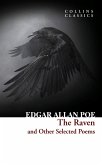In "The Pier-Glass," Robert Graves crafts a haunting narrative that intertwines themes of love, betrayal, and self-identity through the lens of a young man'Äôs contemplative journey. Set against a richly textured backdrop, Graves employs a lyrical and often introspective style, blending poetic elements with philosophical musings. The novel's exploration of the human psyche reflects the tumultuous post-World War I era, capturing both the disillusionment and search for meaning that defined the time. The pervasive motif of reflection in the titular pier-glass serves as a metaphor for the protagonist's quest to reconcile his inner conflicts with the external world. Robert Graves, a prominent poet and novelist, drew from his own experiences as a soldier and a scholar to inform his narrative. His diverse influences, ranging from the classic literary canon to his fascination with mythology and psychoanalysis, converge in this work, allowing him to probe deeply into the complexities of consciousness and relationships. Graves's poignant exploration of the self can be seen as a response to the fragmentation of identity experienced by many in the aftermath of the war, as well as a reflection of his evolving literary voice. I highly recommend "The Pier-Glass" to readers interested in a thought-provoking examination of post-war identity and existential musings. Graves'Äôs masterful prose and the novel's rich symbolism invite readers to engage with profound questions, making it a significant contribution to early 20th-century literature. This book is essential for anyone seeking to understand the intricacies of human emotion and the search for clarity in a chaotic world.
Dieser Download kann aus rechtlichen Gründen nur mit Rechnungsadresse in A, B, BG, CY, CZ, D, DK, EW, E, FIN, F, GR, H, IRL, I, LT, L, LR, M, NL, PL, P, R, S, SLO, SK ausgeliefert werden.









